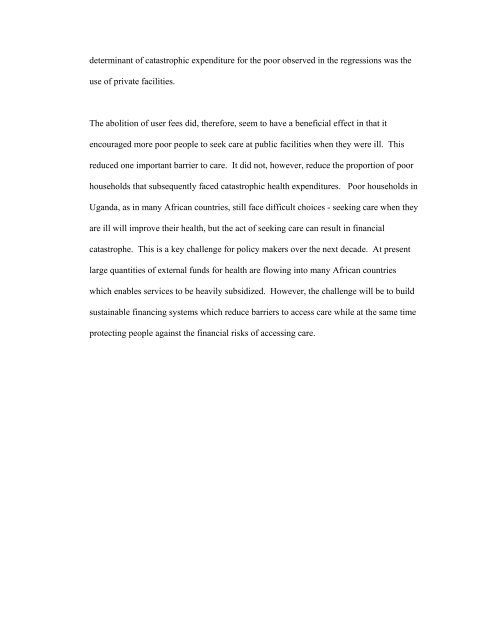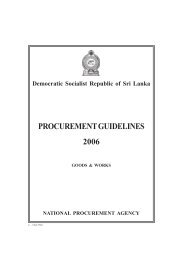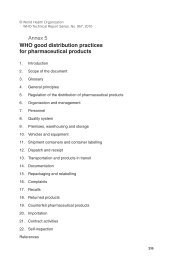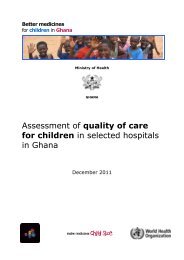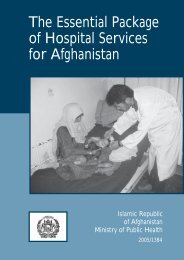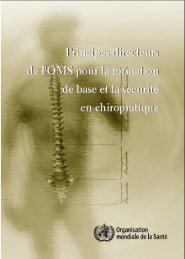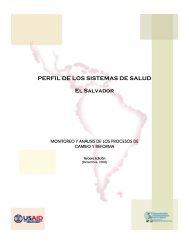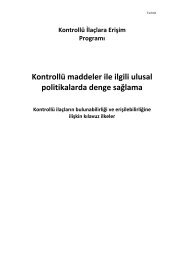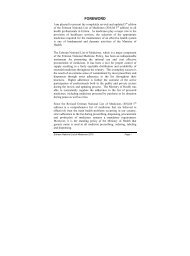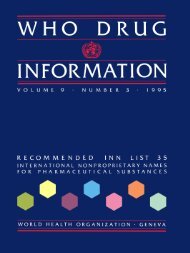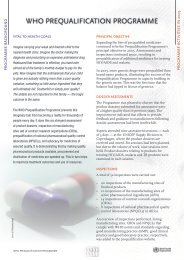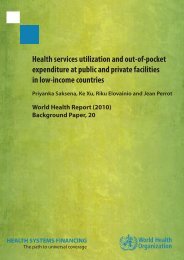The elimination of user fees in Uganda - World Health Organization
The elimination of user fees in Uganda - World Health Organization
The elimination of user fees in Uganda - World Health Organization
Create successful ePaper yourself
Turn your PDF publications into a flip-book with our unique Google optimized e-Paper software.
determ<strong>in</strong>ant <strong>of</strong> catastrophic expenditure for the poor observed <strong>in</strong> the regressions was theuse <strong>of</strong> private facilities.<strong>The</strong> abolition <strong>of</strong> <strong>user</strong> <strong>fees</strong> did, therefore, seem to have a beneficial effect <strong>in</strong> that itencouraged more poor people to seek care at public facilities when they were ill. Thisreduced one important barrier to care. It did not, however, reduce the proportion <strong>of</strong> poorhouseholds that subsequently faced catastrophic health expenditures. Poor households <strong>in</strong><strong>Uganda</strong>, as <strong>in</strong> many African countries, still face difficult choices - seek<strong>in</strong>g care when theyare ill will improve their health, but the act <strong>of</strong> seek<strong>in</strong>g care can result <strong>in</strong> f<strong>in</strong>ancialcatastrophe. This is a key challenge for policy makers over the next decade. At presentlarge quantities <strong>of</strong> external funds for health are flow<strong>in</strong>g <strong>in</strong>to many African countrieswhich enables services to be heavily subsidized. However, the challenge will be to buildsusta<strong>in</strong>able f<strong>in</strong>anc<strong>in</strong>g systems which reduce barriers to access care while at the same timeprotect<strong>in</strong>g people aga<strong>in</strong>st the f<strong>in</strong>ancial risks <strong>of</strong> access<strong>in</strong>g care.


